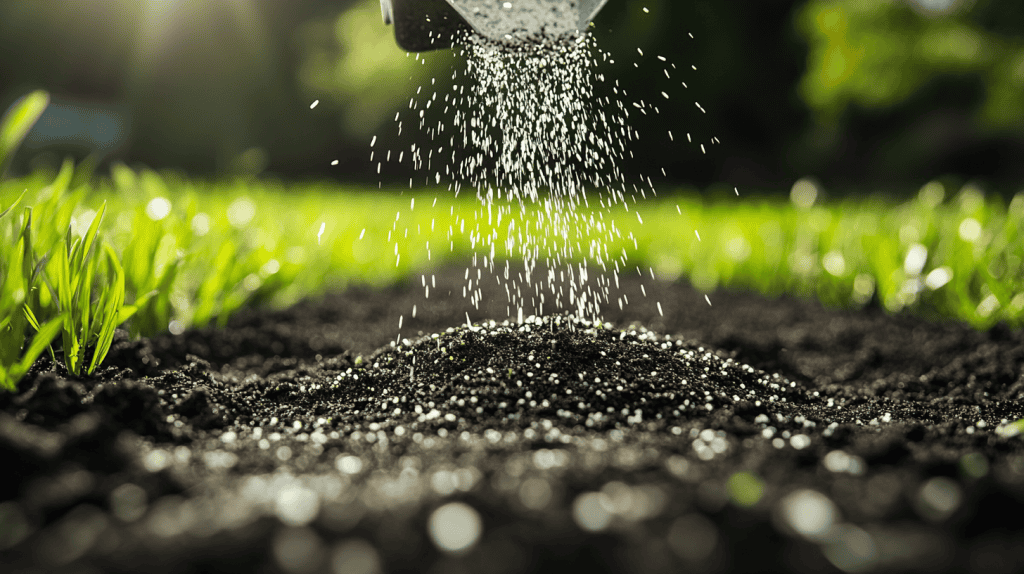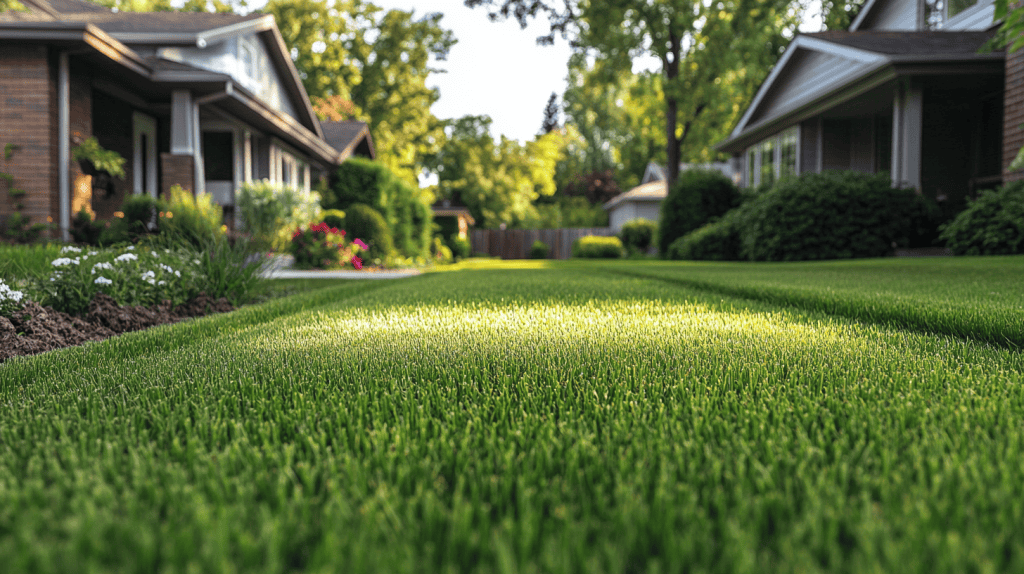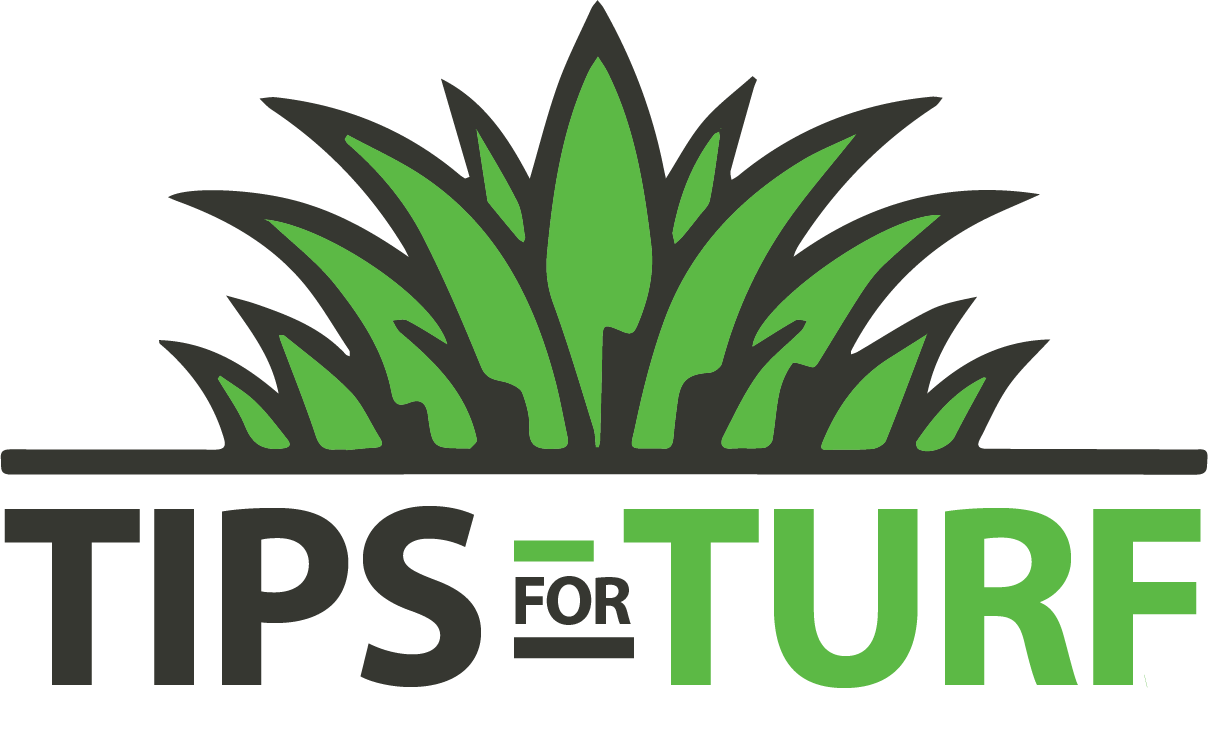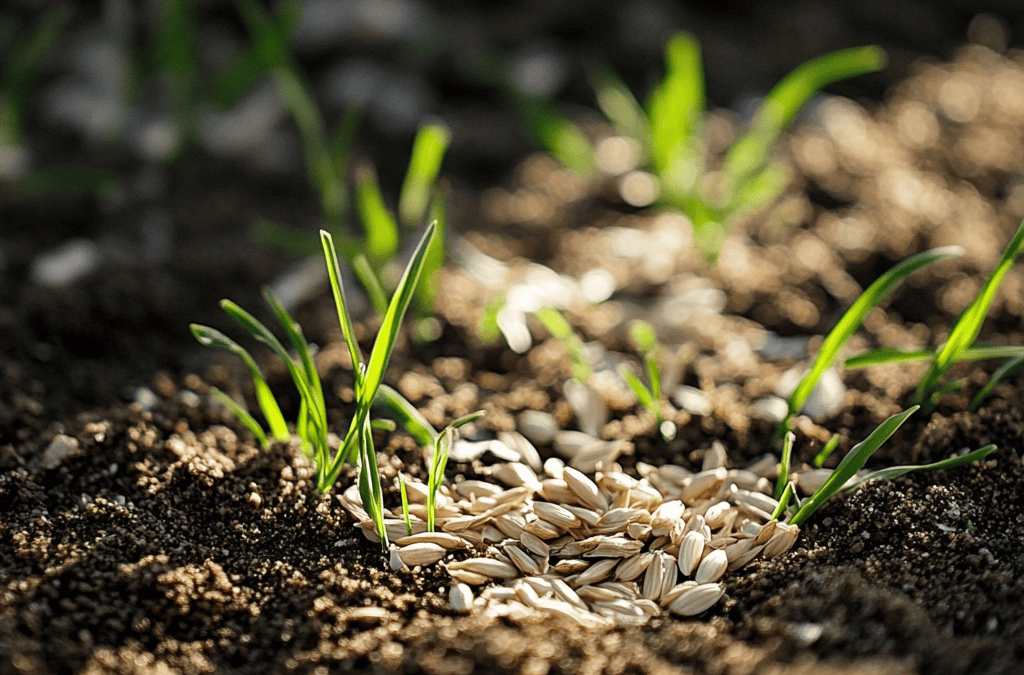Getting a dark, lush lawn requires a delicate balance of seeding, watering and fertilizing. When seeding a new lawn, or overseeding an existing turf, the question of whether or not fertilizing will negatively affect new grass seed is an important one.
(If you make a purchase using the links in this post, we may earn a commission.)
What Happens If You Fertilize And Seed At The Same Time?
There are two possible outcomes of fertilizing new grass seed depending on the type of fertilizer that you use.
- Synthetic Fertilizer – This would essentially be any lawn fertilizer that is not marked as an organic fertilizer. Most fertilizers that you can buy from big box stores are synthetic fertilizers that are fast-release (the nutrients disperse quickly into the lawn) fertilizers designed to get a quick result. Because these fertilizers are fast-release, using a synthetic fertilizer will most likely kill the new grass seedlings due to overfeeding it high-doses of nutrients.
- Organic Fertilizer – Organic fertilizers like Milorganite are non-burning as the nutrients take a long time to break down using natural bacteria, UV, and water exposure. This means an organic fertilizer will not harm new grass seedlings as they grow. There are also starter fertilizers, like Scotts Turf Builder, that are specially designed to be used at the time of seeding to improve new grass growth.
Pro Tip: If you have any Milorganite laying around, we’d recommend mixing this fertilize into your grass seed which can then be applied through a push spreader or a hand spreader at the time of seeding.

Best Way To Fertilize Your New Grass Seed
If you are planning to use a synthetic fertilizer (non-organic), it is recommended not to apply this type of fertilizer until the new grass seed has grown to a height of 2-3 inches. Applying synthetic fast-release fertilizers at the time of seeding can negatively affect new grass seed.
By waiting until the new grass has grown to a height of 2-3 inches, this allows the new grass seed to develop a deeper root system, which helps it to be more capable of handling the nutrients from synthetic fertilizers.
If you use an organic fertilizer, applying this fertilizer at the time of seeding is perfectly fine and recommended and will not negatively affect new grass seed.
Since organic fertilizer takes several weeks to start breaking down, it will follow the natural growing process of the grass seed without causing issues to the new grass seed.
Does New Grass Seed Need Fertilizer?
Yes, new grass seed can benefit greatly from fertilizer, as long as it is applied correctly. Fertilizer can provide essential nutrients that can aid in thicker blade growth and deeper root development of the grass plant.
Since new grass takes time to grow, using a slow-release starter fertilizer or an organic fertilizer will ensure that the new grass will be fed slowly over time.

Fertilizer Can Be Applied When Seeding
Using an organic fertilizer or a starter fertilizer specially designed to be applied at the time of seeding can be applied at the time of seeding to help your new seed grow thicker and fuller.
Synthetic fertilizers (non-organic) should not be applied to new grass seed until the new grass has had several weeks to grow.
By following these recommended fertilizer applications, your grass seed will have the best chance of growing in thick and producing a lush, vibrant turf.

